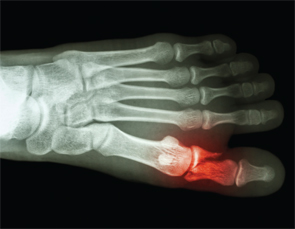Heparin—Low molecular weight heparin has, in most countries, largely replaced old heparin, and with it, fears of thrombocytopenia and osteoporosis have largely disappeared. This is an important point to make, because many practitioners are reluctant to prolong heparin usage.
Two observations: First, a number of patients improve dramatically on heparin, only to feel less well on warfarin.
Where to go next? When dosage issues, warfarin resistance and compliance are (hopefully) ruled out, one immediate option is a temporary return to heparin. In some cases, temporary has turned into semi-long term. In our APS clinic we have a couple dozen such patients who, by choice, have remained on subcutaneous heparin for two years or more. Yes, they have experienced bruising, but so far, we have not seen worsening DEXA scans.
The second (and very clinical) observation concerns a heparin trial. It is a regular observation that aPL/APS patients on heparin during pregnancy are often headache free for the full eight or nine months. This led us to develop a clinical tool—a therapeutic trial that has stood us in good stead. The trial is a three- or four-week course of LMW heparin.49
Let me give an example of its use: In the aPL/APS patient with increasingly severe headaches despite aspirin/clopidogrel (and with a normal brain MRI), a trial of 10,000 units of dalteparin (or enoxaparin) for three or four weeks can achieve substantial results. First, it can give a surprisingly clear indication of whether anticoagulation is the correct path. Second, in the traumatized patient who has been down the familiar pathway of multiple specialist consultations, with borderline clinical success, it can be a major turning point—the first palpable sign of improvement.
Warfarin—There is little new to say about warfarin. It has been vilified by the media, but it remains one of the most useful drugs in our armamentarium. Warfarin, to put it in simple terms, protects against stroke and heart attack in APS.
Mention has been made of the frequent need for a higher INR in many APS patients—especially those with neurological features. I am a strong believer in the use of self-testing INR machines whenever possible in our patients.
Sadly, some anticoagulant clinics oppose the use of self-testing machines. To me, this is wrong. Look at the freedom self-testing for insulin-dependent diabetics has achieved.
As physicians, I believe we have a duty (until better, newer anticoagulants become established) to support warfarin as a largely safe, effective medicine that has saved many thousands of lives.
In 2015, the current treatment of Hughes syndrome is still largely confined to aspirin, clopidogrel, heparin & warfarin.
Miscellany

Spontaneous bone fracture is becoming well recognized following the report of 27 spontaneous metatarsal fractures by Dr. Shirish Sangle in APS patients.
Image Credit: Puwadol Jaturawutthichai/shutterstock.com